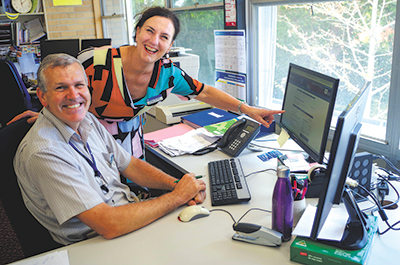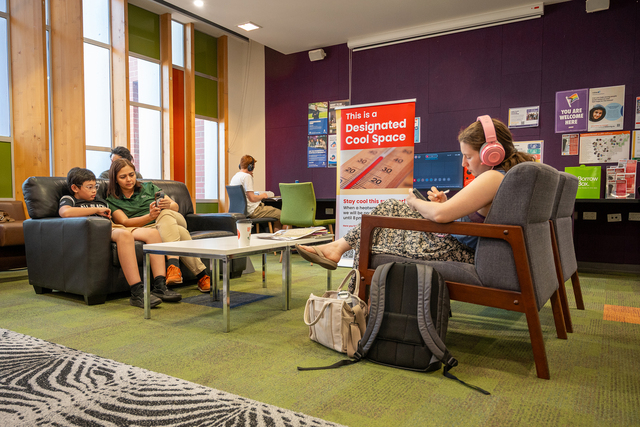City of Nedlands in inner-west Perth facilitates a Volunteer Resource Centre, which acts as a one-stop information shop where people can discuss local volunteering roles matched to their needs.
With a permanent home upstairs at the Nedlands Library, the centre also provides a pop-up volunteering information service at The Grove Library, Claremont Library and Community Hub and Subiaco Library, which are operated by neighbouring western suburbs councils.
City of Nedlands Community Development Officer (Volunteering and Community Groups) Robyn Forrest said more than 600,000 West Australians volunteer – and research showed that volunteers live happier and healthier lives.
“When you include informal volunteering in this figure, four out of five residents lend a hand, sharing happiness and enriching our quality of life,” she said.
“They dedicate 315,000 hours to our community, which equates to a contribution of more than $39 billion to Western Australia’s economy each year.
“If you are looking to make positive changes in the world around you, volunteering is a proactive way to help make the changes you would like to see.
City of Nedlands Mayor Max Hipkins said volunteers help to make communities stronger and that their efforts and commitment were appreciated.
“In the City of Nedlands, volunteers play a vital role in a vast array of community organisations that would otherwise not be able to provide services to people in need of assistance,” he said.
“Arts, cultural, conservation and recreational groups depend upon these volunteers for their existence – and we know there are thousands more who help at schools with sports, canteen duties and literacy programs.
“There are also plenty of other helpers who care for friends’ children, the elderly and people with disability without ever being registered with an agency.
“Volunteering strengthens a sense of belonging and builds positive relationships that helps to create resilient communities.”

















